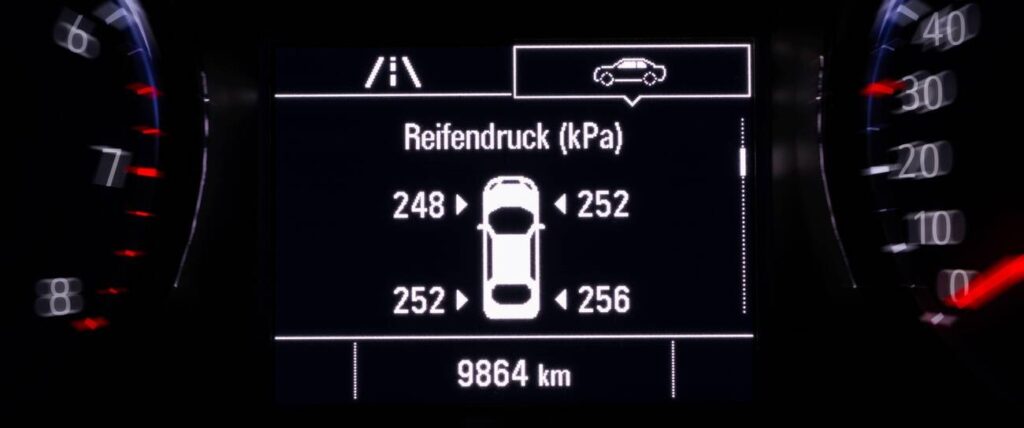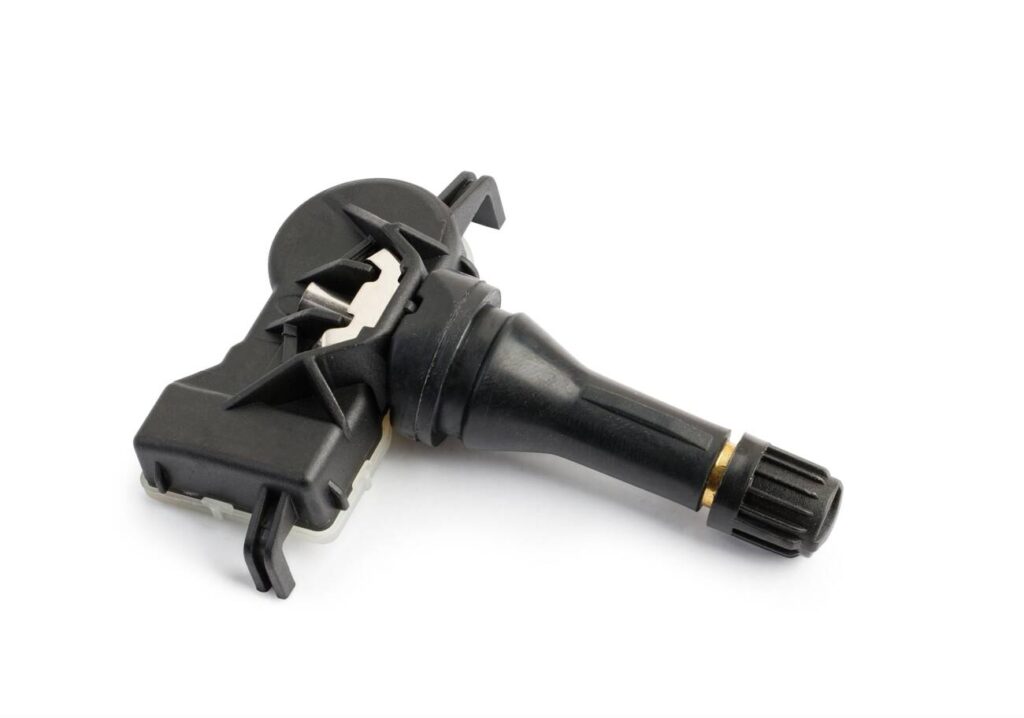Yes, tire pressure sensors can leak air, but it’s usually not the sensor itself that causes the leak. Air loss typically occurs due to damage or wear to components like the valve stem, sensor seal, or improper installation. Corrosion, especially in areas with harsh weather, can also contribute to air leaks around the sensor.
Tire pressure sensors, a key component of the Tire Pressure Monitoring System (TPMS), play a crucial role in maintaining the safety and efficiency of your vehicle. By constantly monitoring the air pressure inside your tires, these sensors alert you when tire pressure falls below the recommended levels, helping prevent issues such as poor handling, increased fuel consumption, and potential blowouts. However, a common concern among drivers is whether tire pressure sensors themselves can leak air, leading to a loss of tire pressure.
In this comprehensive blog post, we’ll explore the relationship between tire pressure sensors and air leakage, the potential causes of air loss, how to diagnose and prevent leaks, and provide answers to frequently asked questions (FAQs) regarding tire pressure sensors.

Contents
Can Tire Pressure Sensors Leak Air?
The short answer is yes, tire pressure sensors can leak air, but it’s not the sensor itself that typically causes the leak. Instead, air leakage is usually related to components associated with the sensor, such as the valve stem, the sensor seal, or the improper installation of the sensor.
Causes of Air Leaks Around Tire Pressure Sensors
Air leaks around tire pressure sensors can be caused by several factors:
- Faulty or Damaged Valve Stem: The valve stem, which is connected to the TPMS sensor, is one of the most common areas where air leaks occur. Over time, the rubber on the valve stem can degrade due to exposure to the elements, such as heat, cold, and UV rays. When the valve stem becomes cracked or brittle, it can cause air to leak slowly from the tire.
- Corrosion: Corrosion is a major factor that can cause leaks in the TPMS sensor assembly. Many tire pressure sensors have metal components, especially in the valve stem, which can corrode when exposed to moisture, road salt, or other contaminants. Corrosion weakens the metal and can cause tiny holes or cracks to form, leading to air loss. This is particularly common in climates with heavy snow and the use of de-icing chemicals on roads.
- Improper Installation: If the TPMS sensor is not installed correctly, it can result in an imperfect seal between the sensor and the tire. An improperly installed sensor can allow air to escape, especially if the valve stem isn’t tightened or fitted correctly. This issue can arise when changing tires or replacing sensors.
- Damaged or Worn-Out Sensor Seal: TPMS sensors have rubber or silicone seals that ensure an airtight fit between the sensor and the wheel. If these seals become worn out, cracked, or damaged, air can leak through the gaps. Sensor seals are subject to wear and tear over time, particularly if they are frequently exposed to harsh weather conditions or improper handling during tire changes.
- Valve Core Issues: The valve core, a small component inside the valve stem, is responsible for maintaining the air seal. If the valve core becomes loose, corroded, or damaged, it can cause air to leak. In some cases, valve cores can also be over-tightened or improperly installed, leading to a poor seal and resulting in a slow leak.
- Damage During Tire Maintenance or Replacement: TPMS sensors can be damaged during routine tire maintenance or tire replacements. If a technician is not careful when mounting or dismounting a tire, they could accidentally hit or damage the sensor, causing a slow leak over time.

How to Diagnose an Air Leak from a Tire Pressure Sensor
If you suspect that your tire pressure sensor or its components are leaking air, it’s important to diagnose the issue properly before taking further steps. Here’s how to check for air leaks around a tire pressure sensor:
- Visual Inspection Start with a visual inspection of the tire, valve stem, and sensor area. Look for any obvious signs of damage, such as cracks, corrosion, or dirt buildup. If the valve stem appears worn or cracked, it may be the source of the leak.
- Soapy Water Test One of the easiest ways to check for a tire leak is the soapy water test. Mix a solution of soap and water and apply it to the valve stem and surrounding area. If bubbles form, it indicates that air is leaking from the sensor or valve stem.
- Listen for Air Leaks In some cases, you may be able to hear the sound of air escaping from the valve stem or sensor area. If the leak is significant, the hissing sound will be audible even at low volumes.
- TPMS Warning Light If you notice that your TPMS warning light comes on frequently or after refilling your tires, it could be a sign of a slow leak from the sensor or valve stem. Keep track of how often you need to top up the tire pressure, as this can help pinpoint a consistent issue.
How to Fix a Leaking Tire Pressure Sensor
If you’ve identified that your tire pressure sensor or valve stem is leaking, there are several steps you can take to address the issue:
- Replace the Valve Stem: If the valve stem is damaged or corroded, it will need to be replaced. In most cases, this requires removing the tire from the wheel to install a new valve stem. It’s important to use a high-quality valve stem that is compatible with your TPMS sensor.
- Tighten or Replace the Valve Core: If the valve core is loose, simply tightening it with a valve core tool may solve the problem. However, if the valve core is damaged or corroded, it should be replaced with a new one to ensure a proper seal.
- Replace the Sensor Seal: If the sensor seal is worn or damaged, it will need to be replaced to stop the air leak. This involves disassembling the sensor from the wheel and installing a new seal.
- Consult a Professional Mechanic: If you’re unsure about how to fix the air leak or suspect the TPMS sensor itself is damaged, it’s best to take your vehicle to a professional mechanic. They can diagnose the issue accurately and replace any necessary components.
How to Prevent Air Leaks from Tire Pressure Sensors
While some air leaks are unavoidable due to wear and tear, there are several ways to minimize the risk of leaks from your tire pressure sensors:
- Regular Maintenance: Inspect your tires, valve stems, and sensors regularly, especially after driving in extreme weather or road conditions. Catching early signs of wear or damage can prevent leaks from becoming a bigger issue.
- Avoid Over-Tightening Valve Cores: When checking tire pressure or refilling air, avoid over-tightening the valve cores, as this can damage the seal and cause air leaks.
- Use Protective Caps: Ensure that the valve stems have protective caps in place to keep out dirt, moisture, and debris, which can lead to corrosion or damage over time.
- Replace Components When Necessary: If your vehicle’s TPMS system is older, it may be wise to replace the sensors or valve stems during tire replacements to avoid potential air leaks due to aging parts.
Frequently Asked Questions
Here are some FAQs about tire pressure sensors and air leaks –
- Can a tire pressure sensor leak air?
Yes, a tire pressure sensor can contribute to an air leak, especially if the valve stem, seal, or sensor components are damaged, worn, or improperly installed. - How do I know if my tire pressure sensor is leaking air?
You can diagnose a leaking sensor by visually inspecting the valve stem, performing a soapy water test, or listening for air hissing. If your TPMS warning light frequently turns on, it could also indicate a slow leak. - Can I drive with a leaking tire pressure sensor?
Driving with a leaking tire pressure sensor is not advisable, as it can lead to reduced tire pressure and compromise vehicle handling and safety. It’s important to address the issue as soon as possible to avoid potential blowouts or tire damage. - How much does it cost to fix a leaking tire pressure sensor?
The cost to fix a leaking tire pressure sensor depends on the extent of the damage. Replacing a valve stem may cost around $20–$50, while replacing the entire sensor can range from $50 to $150 per sensor, including labor. - Do tire pressure sensors need to be replaced over time?
Yes, tire pressure sensors typically need to be replaced every 5 to 10 years as their batteries die or components wear out. Regular inspections during tire maintenance can help determine when replacement is necessary.
Conclusion
Tire pressure sensors are essential for maintaining safe and efficient driving, but they can sometimes be the source of air leaks. While the sensors themselves don’t usually leak, associated components such as valve stems, seals, or improperly installed sensors can cause air loss over time. Regular inspections, proper installation, and timely repairs can help prevent leaks and keep your tires in optimal condition.